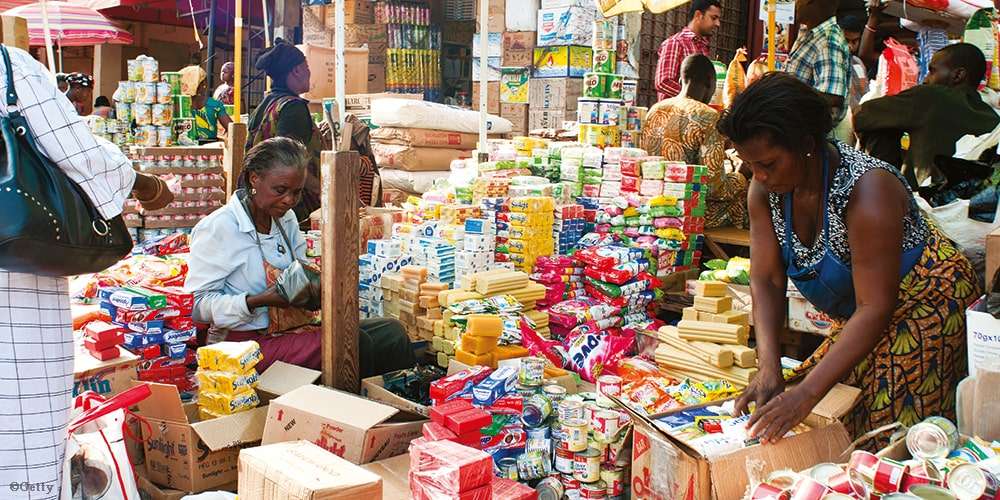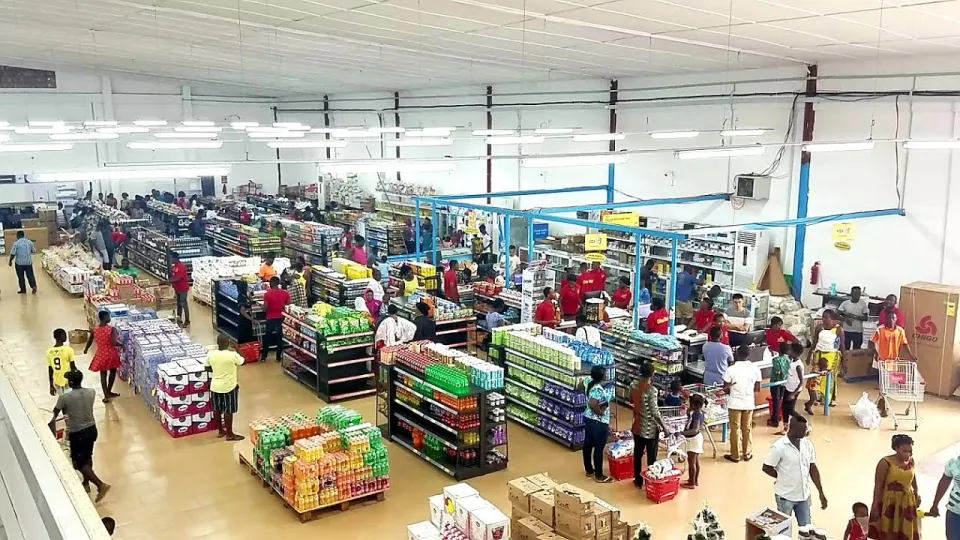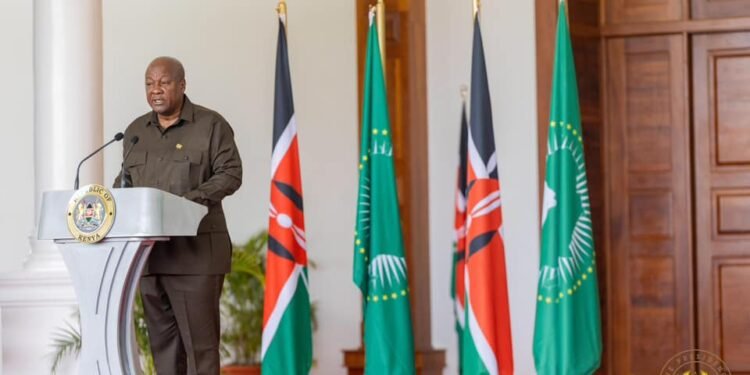The IMANI Center for Policy and Education has thrown its weight behind President John Mahama’s plan to scrap the $1 million minimum capital requirement for foreign trading companies, arguing that retail reform is critical to Ghana’s economic future.
According to the influential policy think tank, Ghana’s long-standing protectionist approach has shielded a small group of traders while stifling investment, innovation, and consumer choice.
IMANI championed openness in economic policy, warning that raising barriers to foreign participation often backfires. Their message is simple: “Protection may shield a few today, but openness builds prosperity tomorrow.”
From IMANI’s perspective, dismantling restrictive policies under the Ghana Investment Promotion Centre (GIPC) Act will not only improve competitiveness but also align Ghana with modern global retail trends.
The GIPC Act’s $1 million threshold was originally designed to protect Ghanaian retailers from being overrun by foreign investors.
However, critics, including IMANI, argue that the law has outlived its purpose. Instead of safeguarding livelihoods, it has become a deterrent to smaller, more diverse foreign players who could enrich the market.
Ghana’s retail environment has undergone a remarkable transformation over the past decade.
IMANI stressed that this evolution reflects broader shifts in consumer expectations.
“Retail in Ghana is evolving rapidly. A growing middle class, coupled with a young, tech-savvy population, is reshaping consumption patterns. Shopping malls and organized retail spaces are expanding, not only because they provide goods, but because they deliver an experience valued by consumers.”
IMANI Center for Policy and Education

Beyond physical shops, digital platforms are revolutionizing retail. E-commerce is surging in Ghana, mirroring global trends where online shopping has become a permanent fixture of consumer life.
In 2024, e-commerce accounted for 20.1% of all retail sales worldwide, marking a historic milestone. Just a year earlier, the figure stood at 19.4%. This rapid expansion underscores the extent of digital transformation across markets.
IMANI noted that the shift is not limited to advanced economies. Emerging economies, including Ghana, are experiencing similar transitions.
The structure of retail trade is moving away from open-air markets toward organized centers and digital commerce. In this context, GUTA’s push to preserve traditional turf appears increasingly misaligned with reality.
Openness Versus Protection
While IMANI applauded the president’s reform initiative, GUTA has taken a hardline stance against the policy.
For decades, GUTA has positioned itself as the defender of local traders, arguing that foreign involvement in retail undermines Ghanaian livelihoods. Their focus has been on maintaining retail as the domain of locals, particularly within informal markets.
However, IMANI countered that keeping out competition is no longer sustainable in a rapidly modernizing economy.
Opening the retail space, they argued, would yield tangible benefits for consumers. More players in the market would increase product variety, encourage innovation, and push prices downward.

The $1 million rule, according to IMANI, was a blunt instrument. While its intention was to provide protection, in practice, it created an artificial barrier to investment without meaningfully shielding local traders.
Removing this restriction would allow more diverse businesses to operate, which in turn could stimulate growth and modernization in Ghana’s retail sector.
Despite its call for openness, IMANI acknowledged that the retail market cannot function as a free-for-all.
“This is not to argue that the sector should be a free-for-all. Proper registration and regulation remain necessary, particularly for foreign firms and online businesses, to ensure compliance and consumer protection.”
IMANI Center for Policy and Education
The think tank stressed that as economies expand, retail markets naturally grow more competitive. Investors are drawn not only by opportunities for profit but also by the chance to introduce efficiency and innovation.
For Ghana, where manufacturing and wholesale remain underdeveloped, retail is one of the country’s most dynamic gateways for foreign direct investment (FDI).
IMANI warned that insulating the sector from external competition risks leaving Ghana isolated from the very investment and consumer benefits it needs. Instead, strategic openness—backed by effective regulation—offers a path toward sustainable growth.
Long-Term Vision For Retail Reform
At the heart of the issue is whether Ghana should prioritize short-term protection or long-term competitiveness.
GUTA’s stance seeks to shield a limited group of traders, but IMANI insisted that such an approach undermines consumer welfare and Ghana’s attractiveness to investors.

“But the bigger picture is clear: as economies grow, retail markets naturally become more competitive and attractive to investors. Ghana, lacking a strong manufacturing or wholesale base, has retail as one of its most dynamic entry points for FDI. Trying to wall off that space risks isolating the country from the very investment and consumer benefits it needs.”
IMANI Center for Policy and Education
IMANI argued that President Mahama’s proposed reform, if implemented, could serve as a catalyst for a new era in Ghana’s retail trade—one defined by openness, innovation, and global alignment.
In the long run, the think tank believes that retail reform will determine whether Ghana embraces a future of growth and prosperity or clings to outdated protectionist instincts.
READ ALSO: UK Borrowing Costs Hit 27-Year High























